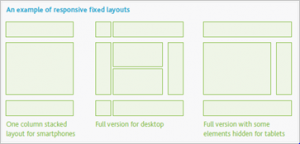There was a great question recently posted on reddit, about how to get into digital marketing. Here is the very simplified guide on how to get started:
Today’s marketing world is about digital marketing. The good thing about digital marketing is, you can pretty much just jump right in. If you want to start a blog, set up a WordPress website – there are tutorials on how to do this – from getting a domain, to securing a host, to installing, to managing. All free. As soon as you have your website up, set up Google Analytics – this will be your absolute goto tool for pretty much everything you do with the website.
Once you have a website, read about how to optimize it for SEO and conversions. The purpose of your website should be one of two things – either get information (email, phone, name, etc…) or sell something. In either case you will want to make sure, before you put any content on your site, that you understand why you’re putting it there, and what kind of content you actually need.
Once you’ve done that, pick up Everybody Writes, by Ann Handley, and Adweek’s’ Copywriting Handbook. Read these before you write any blog posts, and even set up any pages on your website.
If you want to get your hands dirty in design/dev, go through the Odin Project to learn the basics of web design. You don’t have to do this right away – even a basic website will work at first.
Once you’ve got your website set up and you’re starting to write some amazing, original content, make sure you set up social media accounts – relevant to your niche (Facebook is usually good for everything, Instagram is good for image-focused content, Twitter is great for tech/marketing, etc…). Update your social media regularly, and use proper hashtags where appropriate.
Well down the road, we’re talking six months – at least – of dedicated, consistent work, you may start getting email addy’s from conversion forms you’ve set up on your website. Once you have some regular subscribers, launch an email marketing program via MailChimp (because you can send to up to 2k contacts for free). Read up on email design and content best practices.
Once you have a system going you’ll want to figure out how to monetize it – whether it’s by selling ad space, doing paid reviews, or selling a product or service of some sort.
Once you’ve monetized, it’s time to put your revenue to work – read up on using AdWords and start doing some PPC campaigns to drive additional traffic to the site. AdWords may not be appropriate for your niche, so there are alternatives. If you have easily-digestable consumer content, you can run ads on Facebook and other social networks. If you have B2B content, you can run ads on LinkedIn. If you have very strong, click-bait driven content you can run content ads through a service like Outbrain or Taboola.
Now that you’ve got some awesome, mind blowing, totally unique content you will want to start thinking about partnering with bigger blogs and news sources to get your content and your name/brand out there. Start thinking about exchanging blog posts with respected creators in your industry.
Now you’re making money and working full time, for yourself. Congrats. This “guide” is about as basic as it gets, but it covers most of the topics you will want to learn about and research. As someone mentioned, the best way to learn is by doing, so you should get going ASAP and learn as you go. You will make a lot of mistakes, and that’s totally fine.
Protip: the biggest aspects in marketing, imho, are consistency and testing. You want to make sure you are doing something every single day – if you are not taking content creation and promotion seriously – you will get nowhere. Testing is also key because you will make a lot of mistakes, and you need to learn from them right away. Always pay attention to your analytics to learn what works and what doesn’t.
As far as beginner resources go:
– HubSpot is an awesome resource for digital/inbound marketing for beginners.
– Moz for SEO
– Buffer blog is an awesome resource for bloggers.
– @Garyvee on Twitter talks about startup SMB marketing
– Google – your best friend in DIY digital marketing
Some of my favorite books on marketing, sales and general business:
– Trust Agents – Brogan
– Everybody Writes – Handley
– Influence: Science and Practice – Cialdini
– No Excuses – Brian Tracy
– Greatest Salesman in the World – Mandino
– Generation P – Pelevin
– Positioning – Trout
– Thinking Fast and Slow – Kahneman
– Tribes – Godin
– Tipping Point – Gladwell
– Adweeks’ Copywriting Handbook
This should keep you busy for at least a year. Good luck.
A more “detailed” guide on digital marketing is also available on our website.
This post was originally published on Winning Marketing.
Business & Finance Articles on Business 2 Community(31)





